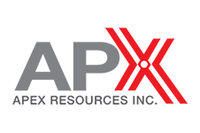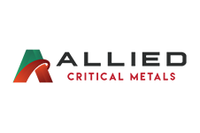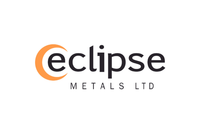Political Divide Deepens Over Seabed Mining in the Cook Islands
Former Australian Prime Minister Scott Morrison argued at the Impact Week conference that while deep-sea mining remains controversial, it is a means of developing the sovereign wealth fund of the Cook Islands.

The Cook Islands should be allowed to “make their own choices” and “have a right to their own future development” in terms of seabed mining, according to former Australian Prime Minister Scott Morrison.
Deep-sea mining was a subject at a panel discussion on the Pacific Islands at the Impact Week Conference, which took place at the Suntec Convention Centre in Singapore from September 15 to 19.
A report by Eco Business said that at the beginning of 2025, international deep-sea mining was opened when the United States proposed conducting activities in American and international waters for transition minerals. The International Seabed Authority responded immediately, stating that it would breach international law.
Cooking partnerships
The Cook Islands made headlines in February following a signed set of deals with China, including one on deep-sea mining.
Under a signed MOU, the Cook Islands and China will cooperate in four aspects: capacity building and technology transfer, environmental stewardship or research, logistical support for exploration activities and seabed minerals exploration and research.
A “Joint Committee on Marine Cooperation in Seabed Minerals Affairs” will also be established under the agreement to oversee the implementation of the partnership.
Months later, the Cook Islands made a joint announcement with the United States on a separate partnership “to advance scientific research and the responsible development of seabed mineral resources.”
“The Government of the United States has begun discussions with the Government of the Cook Islands to support the research necessary to inform seabed exploration and responsible development within the Cook Islands’ Exclusive Economic Zone,” the announcement read.
According to the report, the United States and the Cook Islands are proud U.S.-linked firms that sit at “the forefront of deep seabed mineral research and exploration in the Cook Islands,” therefore reflecting their shared interests.
In March, The Guardian reported that Australia, alongside New Zealand, expressed concerns about the increased involvement of China in Pacific infrastructure activities. It said that critics are concerned as to how deep-sea mining can potentially create “geopolitical vulnerabilities.”
The case for Australian waters
According to research published under the Commonwealth Scientific and Industrial Research Organisation (CSIRO), mineral exploration and recovery in the first three nautical miles offshore or “coastal waters” is governed by each Australian state.
“Beyond the first three nautical miles and up to the continental shelf boundary is referred to as the adjacent area, and is governed by Commonwealth legislation,” the paper furthered.
Legally, two jurisdictions in Australia have already banned seabed mining.
Northern Territory permanently prohibited the activity in 2021. In the CSIRO report, it was mentioned that prior to this permanent decision, a three-year moratorium was placed on offshore mining due to public clamor in 2012.
In 2024, the New South Wales government passed legislation to ban offshore oil and gas exploration mining in its coasts, The bill was called the Environmental Planning and Assessment Amendment (Seabed Mining and Exploration) Bill 2024, which amends the 1979 Environmental Planning and Assessment Act.
“Not only does this ban keep our waters clean and our marine life healthy, but it also gives certainty to coastal communities, like mine on the Central Coast who are overwhelmingly against offshore mining,” said Minister for the Central Coast David Harris in the statement.
Independent sustainability organisation Greenpeace also tackled these bans and other Australian and Pacific threats brought by deep-sea mining in a 2024 article.
Here, Morrison was mentioned as having “murky mining and weapons links,” with the organisation highlighting his ousting as Australia’s prime minister in 2022.
“He has since moved to the Seafloor Minerals Fund – a venture Greenpeace Australia Pacific has described as ‘a front for war-hungry investors who want to supercharge the weapons industry,’” the article read.
No new seabed mining projects or activities have been announced or supported by Australia as of writing.
International waves
In July of this year, CSIRO wrote a separate report regarding the development of the first environmental management and monitoring frameworks to protect deep-sea ecosystems.
The benchmark was created in the event that the ISA permits deep-sea mining, with the research focused on the Clarion Clipperton Zone (CCZ) in the Pacific Ocean.
CCZ was selected as it is being considered for “potential mining of polymetallic nodules containing critical minerals like cobalt and nickel, which are viewed as essential for renewable energy technologies.”
A full ecosystem model of the CCZ is covered in the research, alongside environmental indicators essential to observe biodiversity and ecosystem changes.
The framework also includes a risk-based management process that “assumes full ecosystem loss unless proven otherwise,” and a data-driven analysis on how metal pollutants influence marine life in the open ocean and the deep sea.
In 2023, ISA launched Deep Dive, an e-learning platform focused on the legal, scientific and technical aspects of deep-sea mining.
According to its December 2024 report, Deep Dive will further enhance its offerings, expand its reach and continue to enhance its knowledge of the concerned areas and its resources, as well as the ISA role and mandate.
Don’t forget to follow us @INN_Australia for real-time updates!
Securities Disclosure: I, Gabrielle de la Cruz, hold no direct investment interest in any company mentioned in this article.



